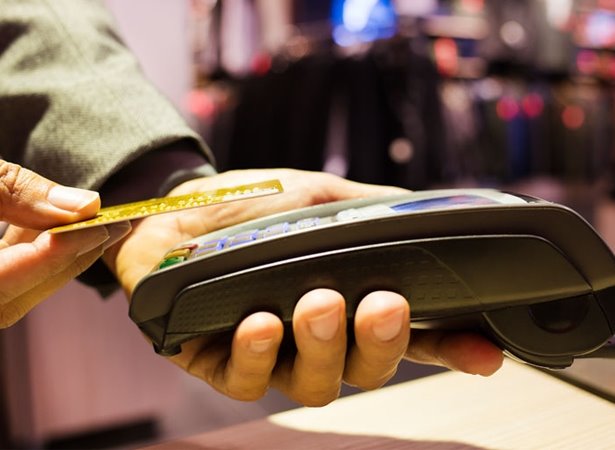The Dangers Of Exclusively Contactless Payments For Your Business
September 01, 2020

When the world was put on hold with COVID-19 pandemic lockdowns, everything from travel to business and regular transactions simply stopped. No more morning coffee. No more evening commute. No more weekend brunch.
As society begins to reopen and businesses return to some form of normal, the lasting effects of the COVID-19 pandemic have forced a rethink upon the nation.
Misinformation about contact transmission has seen many people being pushed towards contactless payment as a way of saving us from the excessive transference of germs. This is despite the fact that health bodies, such as the World Health Organization, has said that cash carries no more risk than other payment options.
Many organizations are also seeing reduced cash use. Even the concept of ‘petty cash’ is becoming a distant memory as company cards becoming the norm.
So, with consumers, retailers and other businesses seemingly reducing their use of cash in light of the pandemic, where does the cash industry now stand?
What’s more, is contactless payment really the safer way to operate, or are we simply being blindly led down a rabbit hole of “tap to pay” without really understanding what is going on behind the scenes?
The Dangers Of Contactless Payment
A study carried out by contactless provider Merchant Machine found that, in Europe, over half of all card transactions are conducted via contactless payment. These figures are staggering and suggest a real surge in not only the use of contactless itself but the trust and ease with which we are using it for our daily transactions.
Dangers Of Contactless Payment For Personal Data
What is not completely clear is the implications of contactless payment on our personal data protection. What information is collected when we make that “tap to pay” gesture, and how can we possibly track who has access to our personal information once it has been uploaded and processed through the Cloud linked to that specific retailer.
The personal data risk does not end with annoying calls from third-party companies that get hold of your number and contact details. With an increase in personal data risk, comes an increase in the possibility of cyber-crime taking over.
Unfortunately, contactless payments may become breeding ground for criminals. There is not just the risk of providing criminals with an opportunity to steal a card and spend money on it easily without so much as a PIN number. However, contactless payments also open the doors to radio wave frequency hacking, using fake scanners to obtain valuable information and – most worryingly - clone payment cards.
Dangers Of Contactless Payment For Businesses
While cash provides every customer with an equal opportunity to utilize and purchase your products and services, the limitation of being “contactless only” instantly limits your customer base.
Those without contactless cards, for example, those without banking facilities or those who prefer to be cash-based will no longer be able to shop in your store. Those whose card is lost, or faulty, or waiting to arrive – all of those customers will not be able to shop with you.
Even those customers who choose to shop with a limited amount of cash rather than card, in an effort to curb their spending, will no longer be able to shop with you.
In essence, by championing contactless payments and eradicating the possibility of paying by cash, you may dramatically cut your customer base – leading to a potentially detrimental impact on your business.
In an age where we are all trying to recover from the impact of the pandemic on the economy and trying to stimulate consumer activity; it is important to make sure you are able to cater to as many customers as possible.
Contactless And Security Challenges
Aside from the lost business, contactless brings with it a whole host of security issues. Furthermore, it leads to reliance on one type of technology, which can pose a risk through its limitations.
Of course, retailers and companies can mitigate their risks against security challenges. For example, with the possibility of implementing high-level authentication and encryption behind each transaction.
However, the investment into these high-level technologies may be too much for many retailers to bear. This is especially true as retailers already have to consider the transaction fee for every card payment and the cost of technologies required for processing digital payments.
Consequently, when it comes down to a solely contactless future; it seems as though organizations have been a little hasty in eliminating cash from their business without carefully considering the safety, security and financial implications.
Giving Customers The Option
What the business world needs right now is to prioritize their customers. This may mean retailers have to create balance by having different payment options to suit all of the ways consumers want to pay. The fact is, if the consumer cannot pay in the way they wish to pay, they will simply walk out – and you will be one transaction down.
Finding Safer Ways To Pay
Whether for card, cash or contactless payments, the critical aspect for retailers is that every payment is safe, efficient and cost-effective. Fortunately, for every payment option, there are steps all retailers can take to improve the payment process.
For some retailers, this may mean looking into the security of their payment option. For example, using forgery detectors for cash or having enhanced encryption for digital payments.
To help reduce contact transmission, which, while the risk is low, may still be at the forefront of consumer minds; there are options available. For example, retailers could move card payments to contactless, covering pin pads with an easy-clean layer or using one-touch cash handling solutions such as the CCi.
If you’re looking to improve your cash handling so that it’s safer, faster and more efficient, talk to cash handling experts at Volumatic. The team will be on hand to find the ideal solution that works for your business.